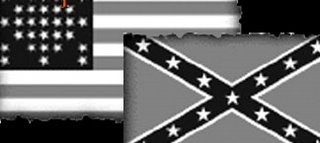Dialectical Prejudice: an Observation

While dialectical prejudice used to be quite prevalent in the United States, I don’t see or hear of it quite so much anymore. I can remember the time when, as a southerner, I used to be faced with this form of narrow-mindedness and was ridiculed by those who practiced it.
I grew up on the coast of Virginia in a resort town, and, in a Navy family. People from all over the country ended up there, and of course as a child you deal with more of this form of mockery than as an adult; that is not say that I didn’t see adults participating in the same childish repartee.
In the Southern United States, some people think that all Northerners are rude as a result of the way they talk (their dialect). Conversely, in the Northern states some think that all
Southerners are ignorant for the same reason. Could it possibly be that it is plain “ole” everyday prejudice? Or, is there more to it?
Experience teaches us to associate certain accents and dialects with certain regions of our country, state, or even town. However accurate and innocuous this type of prediction might be, it can easily become a tool of discrimination. When someone’s place of origin is seemingly evident from the moment he open his mouth, prejudices against that area and its inhabitants may totally eclipse for the listener what the speaker is trying to communicate.
There are many things that can affect how people conceive other people to be. An attachment and loyalty felt within areas of a particular dialect could result in hate and prejudice for outsiders. This could be attributed to the past when groups of people were faced with conflict over insufficient natural resources, and in an environment of deficiency, individuals needed to band together in-groups to compete successfully with other groups for survival. Dialectical groups are bound communities of mutual trust and security; thus, psychologically they feel threatened by outsiders. The less that a dialectical group understands an outsider, the more threatened they feel by them, this promotes fear resulting in prejudice. Dialectical prejudice seems to be more prevalent between Northerners and Southerners; this could be, in part, due to the fact that prejudices of the Civil War era have been handed down form generation to generation.
As a Southerner, should one be distraught by the fact that some Northerners look at the southern states as being the proverbial harbor of ignorance? A good deal of the blame for this attitude could be attributed to entertainers on television, in theater, and movies portraying Southerners as being simpletons simply because the collective dialects of the south differ from those of the north.
One might believe he is impervious to this form of prejudice, and not allow it to affect them in a derogatory way; however, truth be told, deep down, it likely doesn’t set well with most, and some Southerners may take this form of prejudice personal in consequence of their heritage.
What it boils down to is that it is just human nature to ridicule, fear, or hate what we don’t understand. Some people are just so insecure or unhappy, that voicing their prejudices is the only way they can make or, better yet, fool themselves into feeling they are better than someone else. Maybe one day we’ll grow up and start behaving as though we are the superior beings of this planet that we profess to be; or maybe we have, to an extent.
Here is an interesting site: UnderstandingPrejudice.org
Image from, “The Civil War Explorer”
Technorati Tags: [Blue Ridge Mountains][Appalachia][United States][Prejudice][Dialect][Navy family][Virginia][Southern United States][Northerners][Southerners][communication][communities][Civil War]












4 Comments:
At Friday, 24 March, 2006, Leslie Shelor said…
Leslie Shelor said…
My cousins and I often discuss this subject, especially after a particularly offensive hillbilly joke. Seems like the only people it's politically correct to make fun of anymore are hillbillies, WASP males and fat people.
At Friday, 24 March, 2006, Anonymous said…
Anonymous said…
Interesting post. I used the word "Hillbilly" in my blog name deliberately and with pride, but it does come with a price. Some of the searches people use that lead them to my site are, well, distressing and frankly offensive. Still, to each his own.
I agree with Leslie though that it is still considered perfectly acceptable to make fun of the groups she mentions.
You wouldn't believe the things people have said about hillbillies and southerners in my presence, unaware that I am a southern highlander, because I don't seem to fit their stereotype. The need to say things like that, particularly to people you don't really know, is baffling to me.
At Sunday, 26 March, 2006, Redhen said…
Redhen said…
This is an interesting topic. As a Northerner who has spent half my life living in the South, and as one of Polish heritage, I have thought about the motives of people who make fun of groups and have been the object of such prejudice. We can all agree it's stupid.
I am most interested in the dialect of some of the West Virginia "hillbillies" (the derivation of this term is also interesting.) I listen closely and know that some of the dialect comes from Shakespearean English. My friends are used to me asking if they use the a- before certain verbs consistently for a particular reason. Watch for an article here sometime soon on Southern dialects.
At Monday, 26 June, 2006, Anonymous said…
Anonymous said…
I guess yankee is the southern form of the hillbilly insult.I can relate to your stories differently because I have been around southerners talking about yankees.Once a guy even called me yankee .That didn't bother me ,what bothered me is that later he layed me off from my job.I guess everyone wants to do unto others.
Post a Comment
<< Home